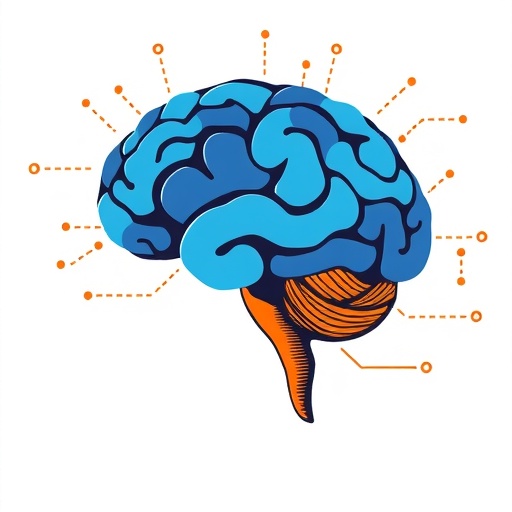Rising Dementia Cases Highlight the Need for Culturally Relevant Prevention Strategies in Africa
As global dementia cases continue to soar, particularly within low- and middle-income nations where healthcare resources are scant, there is an urgent call for innovative preventative strategies. Traditional approaches often fall short in these contexts, necessitating interventions that take into account local cultural dynamics and economic capacities. This is particularly pertinent in Africa, where the burden of dementia is expected to increase significantly. A promising approach to tackling this issue is exemplified by the Africa-FINGERS project, which is rooted in the principles of the esteemed Finnish FINGER trial.
This initiative stands as a groundbreaking adaptation that seeks to decrease dementia risk in African settings through a culturally relevant multi-domain intervention. Africa-FINGERS aims to go beyond mere theoretical frameworks by actively engaging communities, tailoring interventions to fit local practices and lifestyles, while ensuring that they are practical and scalable. The introduction of such multidimensional strategies could serve as a blueprint for addressing cognitive decline in a way that is actionable and sensitive to the socio-economic realities of the region.
Early observations from the ongoing implementation phase of Africa-FINGERS indicate promising results in the realm of cognitive health preservation. Evidence suggests a strong correlation between lifestyle modifications and a reduced risk of cognitive decline. These preliminary insights provide validation for the necessity of lifestyle interventions that encompass diet, exercise, and mental stimulation, all of which are pivotal in maintaining brain health.
The precision brain health model proposed under Africa-FINGERS aligns with the diverse cultural and economic landscapes across the African continent. It is not a one-size-fits-all model, but rather one that recognizes the heterogeneity of communities, aiming to provide tailored solutions that resonate with local norms and traditions. This level of customization ensures a stronger engagement from populations, enhancing the likelihood of sustainable outcomes.
In addressing the challenges intrinsic to implementing such programs, Africa-FINGERS provides a roadmap for mitigating barriers to access and acceptance. The model emphasizes the importance of understanding the local context, ensuring that interventions are designed with the community in mind. This participative approach fosters a sense of ownership among participants, which is crucial for ongoing adherence to recommended lifestyle changes.
Furthermore, the project underscores the significance of partnerships across various sectors, including healthcare providers, local governments, and non-profit organizations. Collaborative efforts are essential for creating a supportive environment that bolsters the success of lifestyle interventions. By pooling resources and expertise, these partnerships facilitate the dissemination of information and promote community-wide engagement in health optimization efforts.
As the World Wide FINGERS global network continues to expand, it becomes vital to harness the lessons learned from diverse settings around the globe. Sharing successful strategies and methodologies provides an opportunity to refine interventions tailored to African populations, ultimately enhancing their effectiveness. The Africa-FINGERS project serves as a critical link in this global dialogue, amplifying the voices and needs of African communities in the quest for better brain health.
The potential impact of Africa-FINGERS extends beyond dementia risk reduction alone; it holds promise for improving overall public health within these communities. By championing lifestyle interventions that support cognitive health, the project can contribute to the alleviation of other non-communicable diseases prevalent in the region. This holistic approach to health not only aims to mitigate cognitive decline but also seeks to create a paradigm shift in how health is perceived and approached in African societies.
In conclusion, the Africa-FINGERS project stands at the intersection of health innovation and cultural relevance, paving the way for a sustainable model of dementia prevention that could resonate throughout the continent. As cognitive decline continues to pose a significant challenge, it is imperative that we leverage community insights and local expertise to shape effective interventions. With its commitment to understanding and addressing the unique challenges of African populations, Africa-FINGERS holds the potential to lead a transformative movement in brain health preservation and dementia risk reduction.
In navigating the complexities of dementia care, the Africa-FINGERS initiative exemplifies how culturally sensitive, evidence-based interventions can be developed and implemented effectively. As it moves forward, the project will undoubtedly contribute invaluable data and insights that will enrich the broader discourse on global health strategies, paving the way for a healthier future where cognitive decline is not an accepted norm, but a preventable condition.
Subject of Research: Dementia risk reduction strategies in African settings.
Article Title: Translating lifestyle interventions for optimal brain health in Africa.
Article References:
Udeh-Momoh, C.T., de Jager Loots, C.A., Watermeyer, T.J. et al. Translating lifestyle interventions for optimal brain health in Africa.
Nat Rev Neurol 21, 449–460 (2025). https://doi.org/10.1038/s41582-025-01104-8
Image Credits: AI Generated
DOI:
Keywords: Dementia, Africa-FINGERS, lifestyle interventions, brain health, cognitive decline, non-communicable diseases, community engagement.




